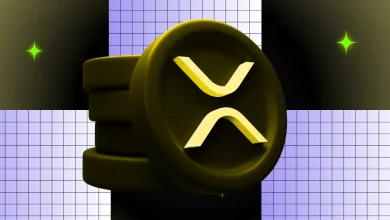
In a groundbreaking move, Digital Currency Group (DCG) has unveiled Yuma, a pioneering company designed to enhance and propel development on Bittensor. Bittensor is a decentralized, open network where individuals can create, train, and access artificial intelligence (AI). Spearheaded by Barry Silbert, this new venture aims to rival industry giants like Google and OpenAI, offering a fresh perspective in the AI sector.
The Vision Behind Yuma’s Decentralized AI
At the heart of Yuma’s mission lies Bittensor, a blockchain project that emerged in 2021. It incentivizes users through token rewards to contribute to a collaborative network of AI services. Bittensor’s decentralized, open-source platform allows participants to provide computational power for running various AI models. Contributors are rewarded with TAO tokens, encouraging widespread participation.
Bittensor empowers users to direct computational resources to specific areas of interest through independent subnets, fostering a dynamic and flexible environment for AI development. Jacob Steeves, co-founder of Bittensor, envisions this platform as a counterpoint to the restrictive frameworks that currently dominate AI access. “We created Bittensor to offer a competitive alternative to the top-down world that limits access to high-powered AI capabilities,” Steeves stated. “We’re championing open access to technology liberated from conventional gatekeepers so that we can ensure the AI revolution is accessible to the next generation of visionaries shaping our world.”
Yuma’s Role in Advancing AI Technology
Under the leadership of Barry Silbert, Yuma provides essential resources such as capital, infrastructure, and technical support to startups and enterprises eager to explore the potential of Bittensor. Yuma’s approach to decentralized AI entails distributing this technology across a network of independent contributors, rather than centralizing it under a few large corporations.
Silbert draws parallels between this initiative and the early days of Bitcoin, which revolutionized the concept of transparent, borderless currency. “Just like the early days of Bitcoin, which fueled the development of a new form of transparent, borderless money, we’re moving from the digital ownership of assets to the decentralized ownership of intelligence,” Silbert explained.
Empowering Innovators Through Decentralized Intelligence
Yuma is committed to supporting transformative projects that redefine the landscape of decentralized intelligence. By shifting the power of AI and machine learning from centralized entities to an open resource accessible to all, Yuma aims to democratize AI innovation. Silbert emphasized, “By supporting world-changing projects that advance decentralized intelligence, Yuma will shift the transformative power of AI and machine learning away from centralized companies to an open and accessible resource for all people.”
The Future of AI with Yuma and Bittensor
Yuma focuses on nurturing a network of decentralized intelligence and computing services, known within Bittensor as “subnets.” These subnets function similarly to applications, and Yuma currently supports around 60 of them. Silbert anticipates a rapid expansion, forecasting thousands of subnets in the near future.
To date, Yuma has successfully launched five subnets, with four emerging from its accelerator program and one through incubation. An additional nine subnets are under development and are expected to be operational in the coming weeks, showcasing Yuma’s commitment to fostering innovation and expanding the reach of decentralized AI.
As Yuma continues to build and support these dynamic subnets, the company is poised to play a pivotal role in shaping the future of decentralized AI, ensuring that technological advancements remain within reach for innovators across the globe.






